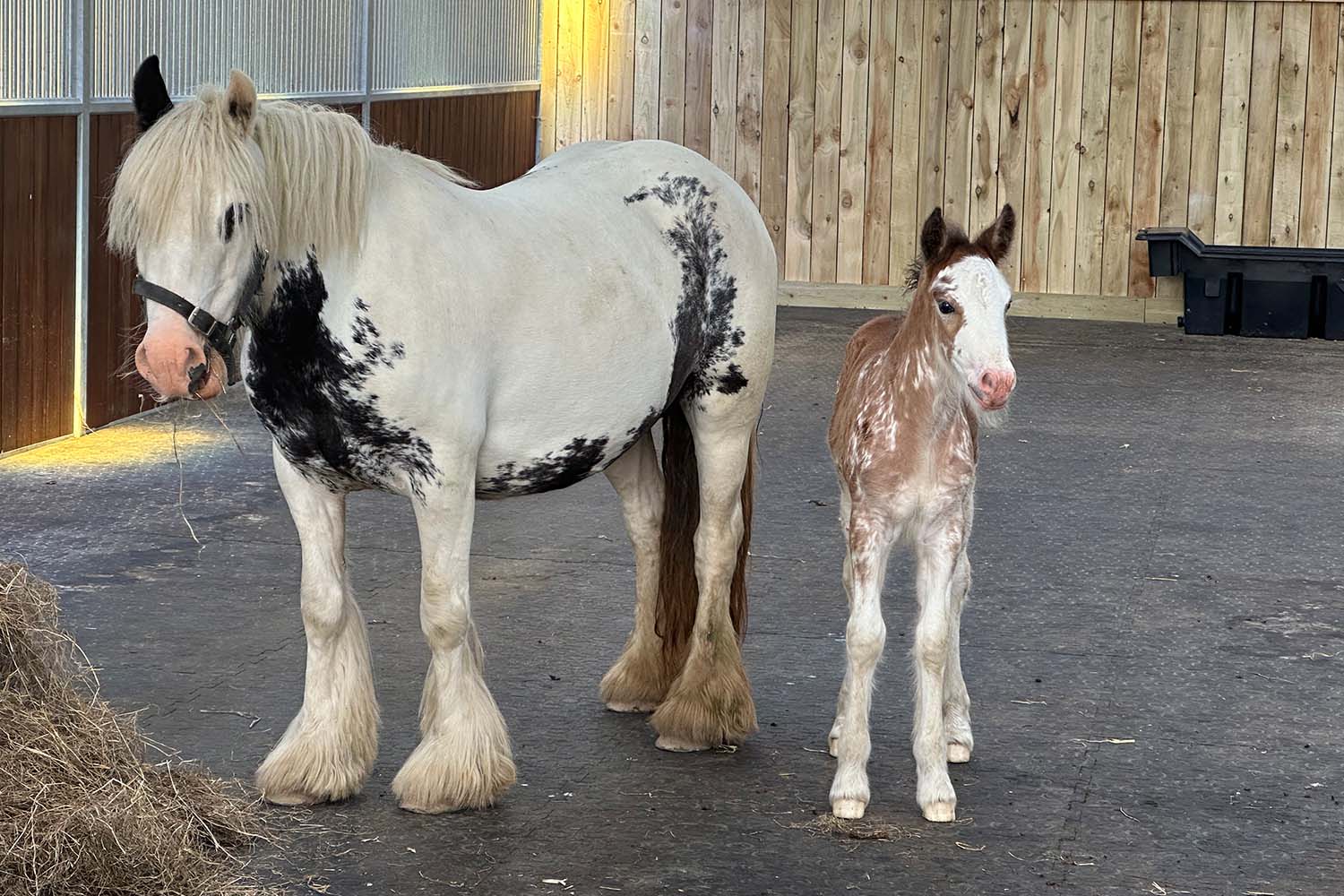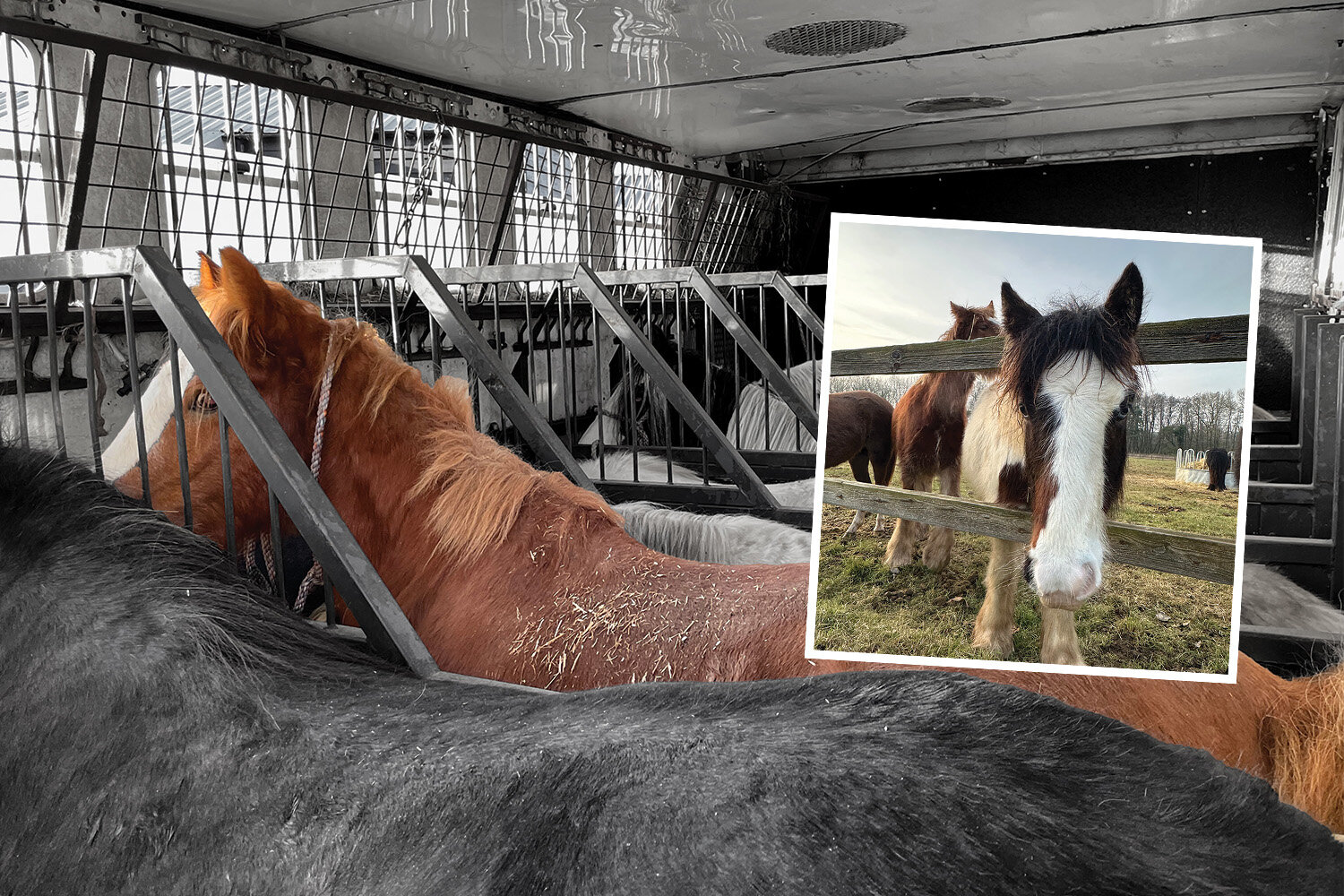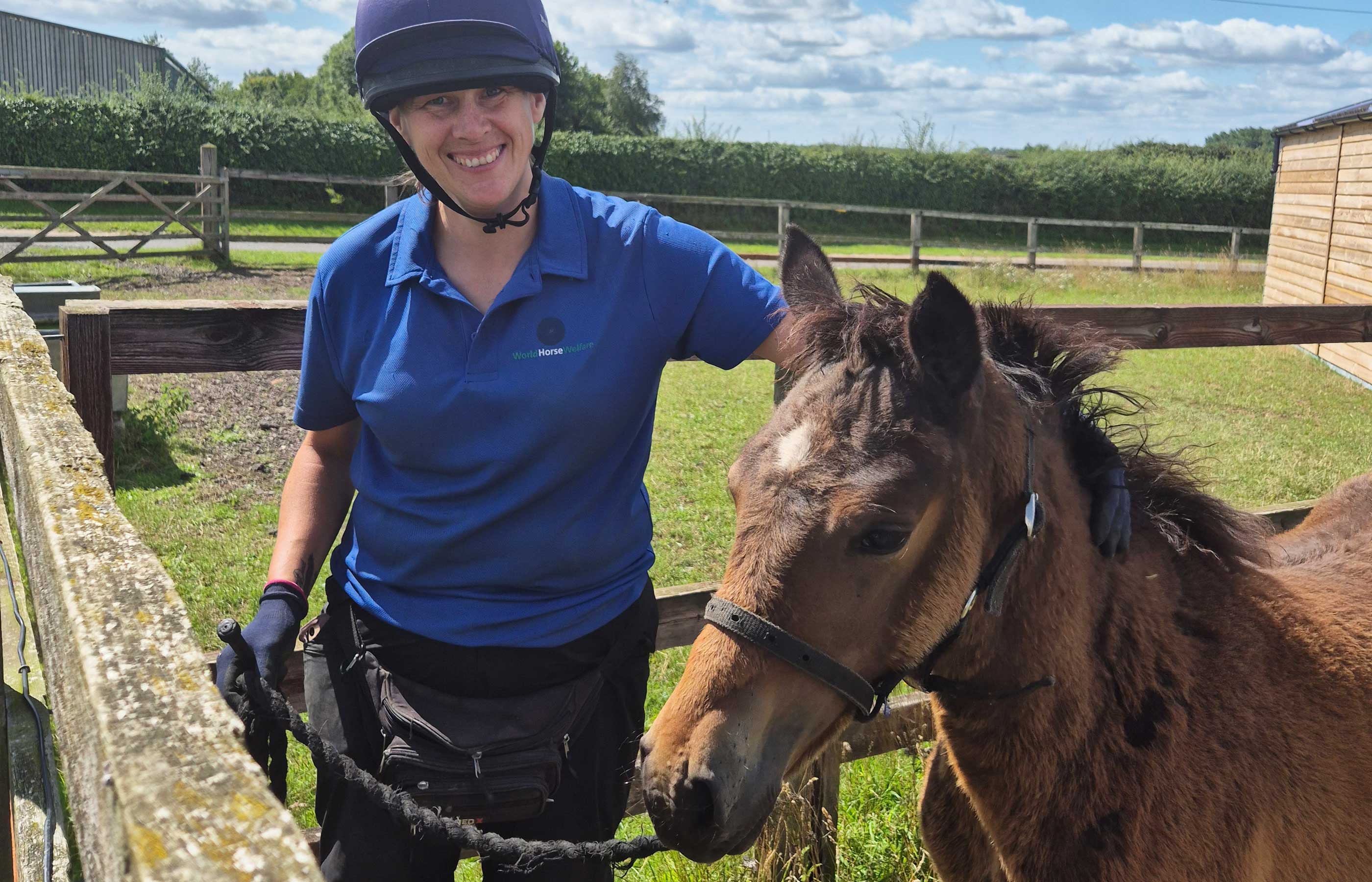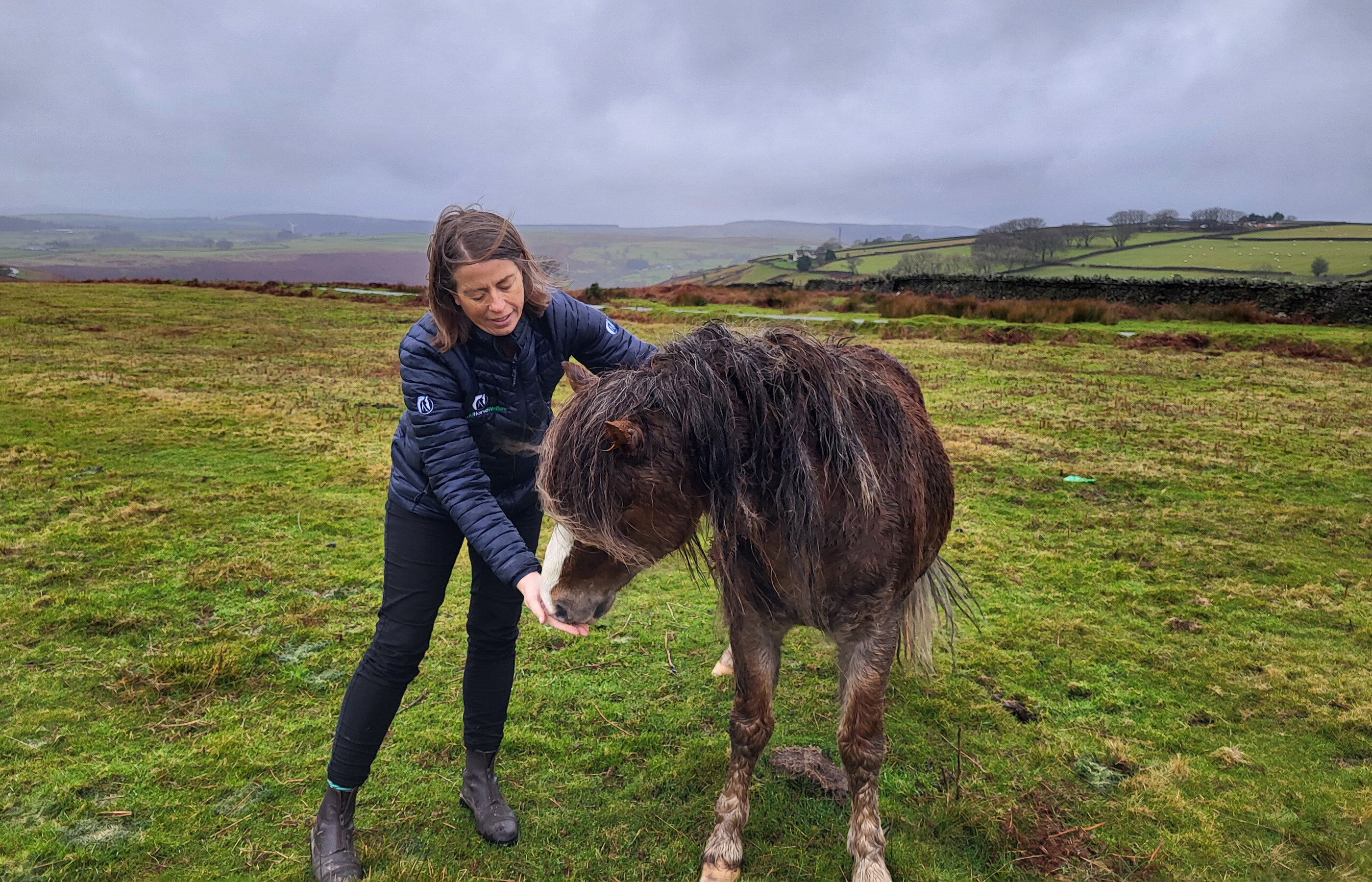New names and bright futures for ‘smuggled’ mare and her days old foal – named Ada and Cole after our inspirational founder
The last of five pregnant mares that we rescued after being found with 21 other horses and ponies being smuggled out of Dover port has given birth to a healthy filly foal.
Posted on 26/06/2024

Lacking a microchip – and therefore an identity – we named the mare ‘Ada’ after our founder and bestowed her surname of ‘Cole’ onto the foal. The name Cole means ‘victory of the people’ and we hope their story will further raise awareness of the issue of horse smuggling and encourage the public to join our campaign to ensure the right measures are implemented to put an end to this cruel and illegal trade. Supporters can sign a pledge to #StopHorseSmuggling.
“Our charity’s founder Ada Cole campaigned long and hard to try and put an end to horses being transported long distances in terrible conditions to slaughter. And whilst the recent live export ban in the UK is a step in the right direction, horse smuggling means hundreds if not thousands of horses are still being illegally transported into Europe in horrific conditions to end their lives in European slaughterhouses.
“With the UK General Election fast approaching, we are calling on everyone who cares about animals to add their voice to our pledge to show the next government that horse smuggling must be stopped. We need to be the voice for frightened horses, ponies and donkeys across the UK who suffer in horrendous conditions, being transported to an unknown fate. Our voice is their only voice.”
Kim Ayling, Senior Public Affairs Officer at World Horse Welfare
The ‘Dover 26’ mare Ada and her new foal Cole are being cared for and rehabilitated at Hall Farm Rescue and Rehoming Centre in Snetterton, Norfolk, along with the other horses and ponies that were rescued at the Kent port. Their story, which was featured in a recent RTÉ documentary about the illegal movement and re-identification of horses (RTÉ Investigates – Horses: Making a Killing), has lifted the lid on an industry that appears to be rampant across Europe, with the Dover 26 highlighting how British horses can easily be caught up in this trade.
Not only are we campaigning for a better equine identification and traceability system across Europe to help protect all horses from being smuggled, we are also calling for better enforcement in the UK and for border posts to be manned 24/7.
“Unfortunately due to the lack of information to be able to properly trace the background of the Dover 26 movements before being discovered, it has made a possible prosecution quite challenging. We have approached all of the local authorities who could have taken legal action and none of them have wanted to take that forward. Unfortunately, this means that in this instance the trader involved will not be prosecuted and they will not have to face consequences for their actions.”
Kim Ayling
“These two are the lucky ones as they have a bright future ahead of them and once Cole has been weaned our charity will ensure they are found loving new homes. I can’t bear to think about all the other horses that aren’t as lucky as them and having to go on even longer journeys in worse conditions. I, for one, will be signing the pledge and hope that others will join me in doing the same.”
Megan Jarvis, Hall Farm groom looking after Ada and Cole
Our #StopHorseSmuggling pledge is for all UK residents who are 18 or over and those who sign the pledge will have the option of being kept informed about our work to end the illegal trade in horses and what else they can do to ensure action is taken by government.
Topics
Related News

Horses rescued from being cruelly smuggled abroad are progressing well
The Dover 26 - where are they now?

Glenda Spooner Farm kicks off summer fun
The team has planned lots of family-friendly days out, from a teddy bears' picnic to hobby horse events and more.
Recommended Blog Posts

The importance of foals having good experiences from birth
Foals born in our rescue and rehoming centres will receive expert, patient handling from day one – we caught up with yard supervisor Lorraine to hear more.

A tough summer for horses – and a tougher winter ahead
At the heart of our work is a simple truth – to help horses, we must support their owners.

Strangles – an update from Hall Farm
We share where we are in our efforts to return to a sense of normality at our Norfolk rescue and rehoming centre.
Enjoy reading stories like this?
Join over 65,000 other horse lovers and sign up for our email newsletter

Join over 65,000 other horse lovers and sign up for our email newsletter
Sign me up now